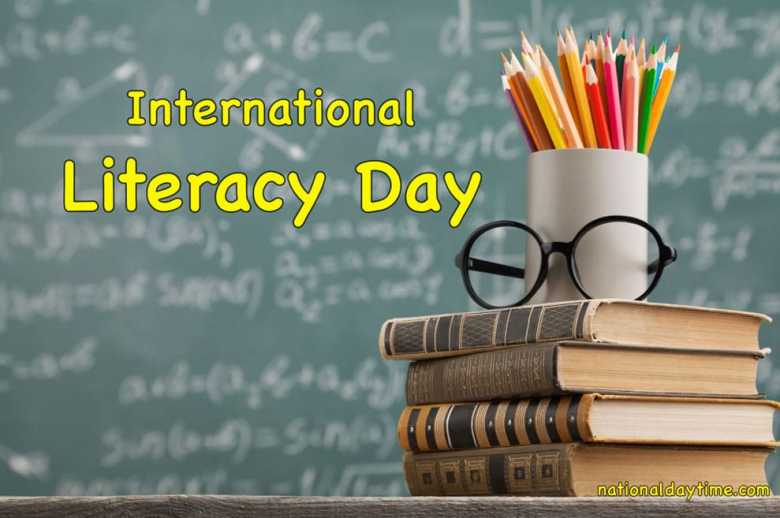


This year's International Literacy Day, celebrated on September 8, is a reminder that literacy is not just about being able to read and write, but about providing individuals with the tools they need to participate fully in society and shape their own futures. Despite progress made, over 770 million people worldwide still lack basic literacy skills, with women disproportionately affected. The day calls for continued efforts to bridge this gap and create a more equitable and prosperous world for all.
International Literacy Day: Empowering Individuals for a Brighter Future
International Literacy Day, observed annually on September 8, highlights the paramount importance of literacy in shaping individuals' lives and fostering societal progress. While reading and writing are fundamental skills, literacy encompasses a broader spectrum of abilities that empower people to interact with the world around them.
Historical Background
The concept of International Literacy Day originated in 1966 at the World Congress of Ministers of Education on the Eradication of Illiteracy. UNESCO, the United Nations Educational, Scientific and Cultural Organization, officially proclaimed the day in 1967 to raise awareness about the urgent need for global literacy.
Global Literacy Challenges
Despite significant advancements in education, illiteracy remains a persistent issue worldwide. According to UNESCO, over 770 million adults lack basic literacy skills, and women are disproportionately affected by this gap. This disparity presents a formidable barrier to their economic and social empowerment.
Theme for 2023: Transforming Literacy Learning Spaces
This year's theme, "Transforming Literacy Learning Spaces," emphasizes the need to create inclusive and engaging learning environments for all learners. It calls for innovative approaches to literacy instruction, such as digital literacy programs, early childhood education, and accessible materials for people with disabilities.
Top 5 FAQs
1. Why is International Literacy Day important? International Literacy Day brings attention to the vital role literacy plays in fostering individual well-being, social development, and economic growth. It advocates for increased efforts to bridge the literacy gap and empower all individuals.
2. What are the benefits of literacy? Literacy empowers individuals by enabling them to:
3. How can we improve global literacy rates? Improving literacy rates requires a multi-pronged approach, including:
4. What has been achieved on previous International Literacy Days? Past International Literacy Days have witnessed a range of initiatives, such as:
5. What can I do to support International Literacy Day? There are many ways to support International Literacy Day, including:
Conclusion
International Literacy Day serves as a potent reminder of the transformative power of literacy. By equipping individuals with the tools they need to participate fully in society, we can unlock their potential, foster economic growth, and create a more just and equitable world for all.

Nvidia, the Silicon Valley titan, has broken yet another market record by becoming the first company to reach a staggering $5 trillion valuation. The remarkable achievement highlights the profound impact of the company's AI chips in driving the ongoing AI revolution. However, concerns have been raised about inflated tech valuations, with the IMF warning of a possible "AI bubble." As Nvidia continues to expand globally and diversify its offerings, it remains to be seen if it can sustain its unprecedented growth.

The Federal Reserve announced a quarter point rate cut, bringing the benchmark interest rate down to a range of 3.75% to 4%. While some economists predict another cut in December, Federal Reserve Chair Jerome Powell stated that a third consecutive reduction is not guaranteed. The decision was made amid the ongoing government shutdown, causing policymakers to rely on private sector indicators for their decision. This move signals the Fed's greater concern about a cooling job market than lingering inflation. With 10 out of 12 members voting in favor of the action, the outcome of the meeting showcased deep division.

Father Muller Charitable Institutions, led by director Fr Faustine Lucas Lobo, has taken a big step towards progress and excellence by inaugurating and blessing four modern classrooms for the students of Father Muller College of Physiotherapy and Father Muller College of Allied Health Sciences. The ceremony, attended by management committee members, faculty, and staff, also saw the presence of respected individuals like Dr Michael Santhumayor and Fr George Jeevan Sequeira. These new additions are a testament to FMCI's commitment to providing top-quality education to its students.

The US Federal Reserve made the decision to reduce its key interest rates for the second time in a row, bringing it down to 3.75%-4.00%. The rate cut was approved by a 10-2 majority vote, with two dissenters who wanted a steeper cut or no cut at all. The Fed also announced that it will stop the reduction of its asset holdings from December 1, but did not provide any indication of its plans for the next meeting in December.

Traditional performance reviews often lack the necessary information and structure to be truly helpful. Lark Base, a project management tool, aims to change this by centralizing performance data into one source of truth. This not only allows for more accurate and comprehensive reviews, but also enables managers to track and improve client-facing projects and employee milestones. Additionally, Lark Messenger promotes a culture of constant feedback by making communication structured, easy to find, and tied to actionable items. With Lark Base and Messenger, performance reviews become more meaningful and effective for both employees and managers.

In a significant development for India's aviation industry, Hindustan Aeronautics Limited (HAL) has signed an MoU with Russia's PJSC-UAC to manufacture the SJ-100 aircraft domestically. This marks the country's first full passenger aircraft production in over three decades and is seen as a major step towards achieving self-reliance in the civil aviation sector. With an expected demand for over 200 jets in the coming years, this partnership is crucial for strengthening regional connectivity and boosting the domestic manufacturing economy.

The Union Cabinet has approved the Terms of Reference for the 8th Central Pay Commission, which will revise salaries and benefits for central government employees and pensioners. The commission is expected to submit its recommendations in 18 months, following extensive consultations with various stakeholders. The recommendations are expected to be implemented from January 1, 2026.

Swan Defence and Heavy Industries, in collaboration with MDL, is making significant investments and expanding capacities at India's largest shipyard in Pipavav Port. This strategic partnership not only reinforces #AatmanirbharBharat but also opens up opportunities for partnerships and tie-ups in the shipbuilding space. The recent signing of a MoU with Mazagon Dock Shipbuilders to design and construct Landing Platform Docks for the Indian Navy is a testimony to this.

Aviation Daily reports that Air China Cargo, a subsidiary of Air China, will soon be acquiring up to ten Airbus A350Fs as part of its efforts to expand its fleet and improve air transport services. The announcement was made by Chen Chuanren, a renowned aviation correspondent for the Aviation Week Network, who joined the team in 2017. This move by Air China Cargo highlights the growing demand for air transport services in the Asia-Pacific region and is expected to contribute to the company's continued growth and success.

Airbus has officially inaugurated its new final assembly line for the A320-family in Tianjin, marking its 10th production line globally. The line is expected to significantly increase production and help achieve Airbus' target of 75 A320-family jets per month by 2027. The advanced facility will feature the company's latest technologies and processes to ensure high-quality production of aircraft worldwide. Plans for the second line were initially announced in 2023 during a state visit by French prime minister Emmanuel Macron.